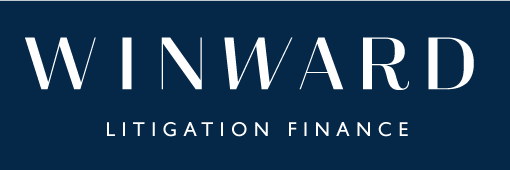Rowe & Ors v Ingenious Media Holdings PLC & Ors [2021] EWCA Civ 29
The security for costs orders that were made by the Court in the Ingenious litigation, which had the effect of the funder having to put up a good deal of security, included a cross undertaking in damages, but only in respect of external costs that were incurred by the funder. No cross-undertaking was provided to take account of the impact of the security to the claimants – who would have to pay significantly more in the way of commission to the funder upon success. However, the claimants were able to put to some external costs that they would also incur in respect of improving the ATE cover. The issue of the correct approach to cross-undertakings was decided in this case following appeals by both the claimants and the defendants.
The Court of Appeal held that the jurisdiction for seeking cross-undertakings inevitably existed. However, losses caused to a claimant or defendant in funding litigation generally lay where they fell and so requiring a cross-undertaking was a departure from usual practice. The Court would require cogent and compelling reasons to justify the departure. Where litigation funders were involved, it would be all the more unusual to depart from settled practice. As the Court went on to explain “it is a critical feature of the business of commercial litigation funding that funders should ensure that they have adequate resources to meet their potential liabilities arising out of the litigation that they choose to fund. It follows that a properly run commercial funder should rarely if ever need to be ordered to put up security. A funder should be structured, and operated, in such a way that there is little doubt that it will be able to satisfy any adverse costs order which may be made against it.” In those circumstances, the Court felt that it was wrong that a commercial litigation funder, which was ordered to put up security because it had failed to show that it had structured its business so that it was in a position to meet an adverse costs order, should be able to pass on the costs (by way of a cross-undertaking) of putting the necessary resources or security in place.
The Court further observed “Well-advised claimants can be expected to seek to avoid funding from funders who are set up in such a way that orders for security for costs might be required against them (for example, where the funder is inadequately capitalised, or not transparent as to its financial standing, or is unwilling to provide defendants with an undertaking that it will meet their costs). Funders who choose to conduct their businesses in these sorts of ways, and who seek to recover the cost of putting in place security by charging their funded clients a multiple of the amount of the cash that they are ordered to put up, can be expected rapidly to lose market share to those funders who are properly capitalised (and demonstrably so) from the outset. If, on the other hand, commercial funders are potentially able to recover the costs of putting in place adequate security from defendants, this would create a positive incentive for funders to be deliberately reticent about their financial means, to retain less capital and obtain less ATE.”
These are powerful points, and make uncomfortable reading for litigation funders. It reflects a simplicity and clarity of thought that is becoming more and more obvious from the Courts. There is a simple assumption that if a funder is willing to accept the risk of funding a case, it equally accepts the risk that it will need to show that it has the funds and the ability to promise a defendant that it will pay over any funds that are necessary to be paid over if the case fails. Questions as to ATE and the funder’s agreement with the claimant are simply secondary to that key point. If a funder is involved, then a defendant is entitled to have a transparent answer from a funder. Indeed, a security for costs application that is made against a funded party would appear to be something that the Court simply would not believe should ever be warranted.
It is of course in the funder’s interest that matters of security are dealt with at the beginning of the case such that satellite litigation can be avoided. It also avoids losing time and allows the case to be focussed on the critical issues. It also reflects belief in the case. The issue of security is a critical one to get right – since it does double the funder’s risk and the consequences of getting the matter wrong are significant. Now we cannot assume that the Arkin cap will ever fit again, the Court’s simplistic approach does rather underestimate the behind the scenes work that is necessary in relation to security for costs, but it reflects a blunt approach from the Court: it will not be at all sympathetic to a funder that is not willing simply to put money into court, if necessary. From the Court’s perspective, it is just one of the matters that funders need to resolve before they commence funding.
